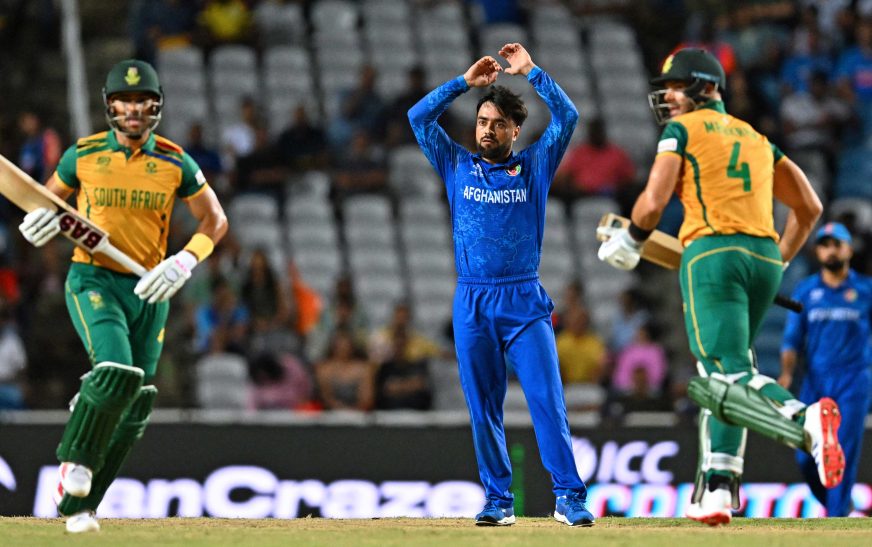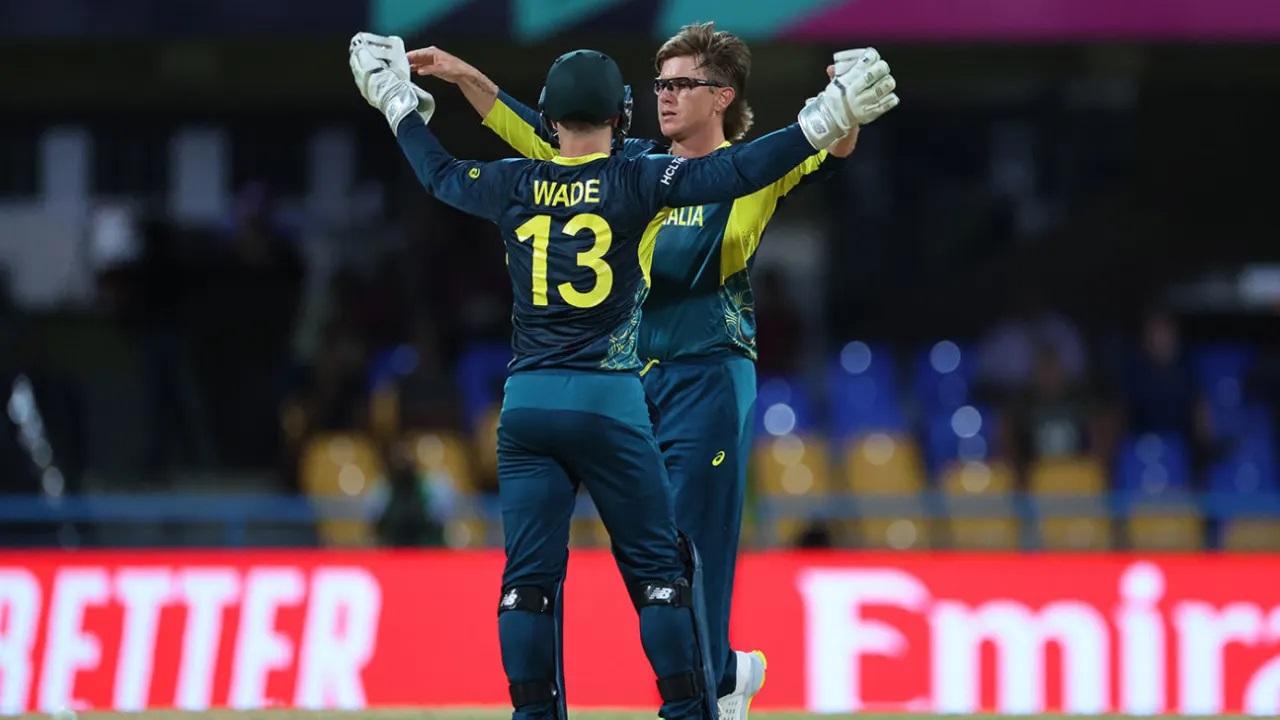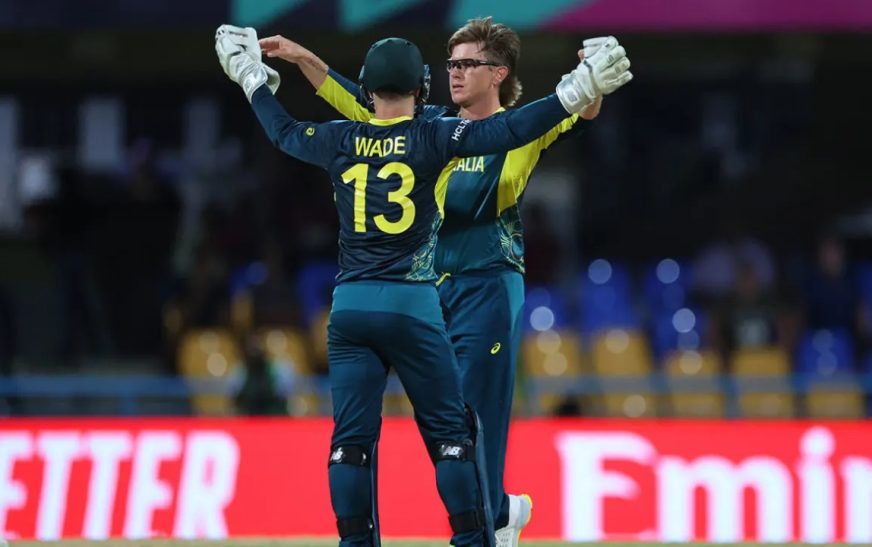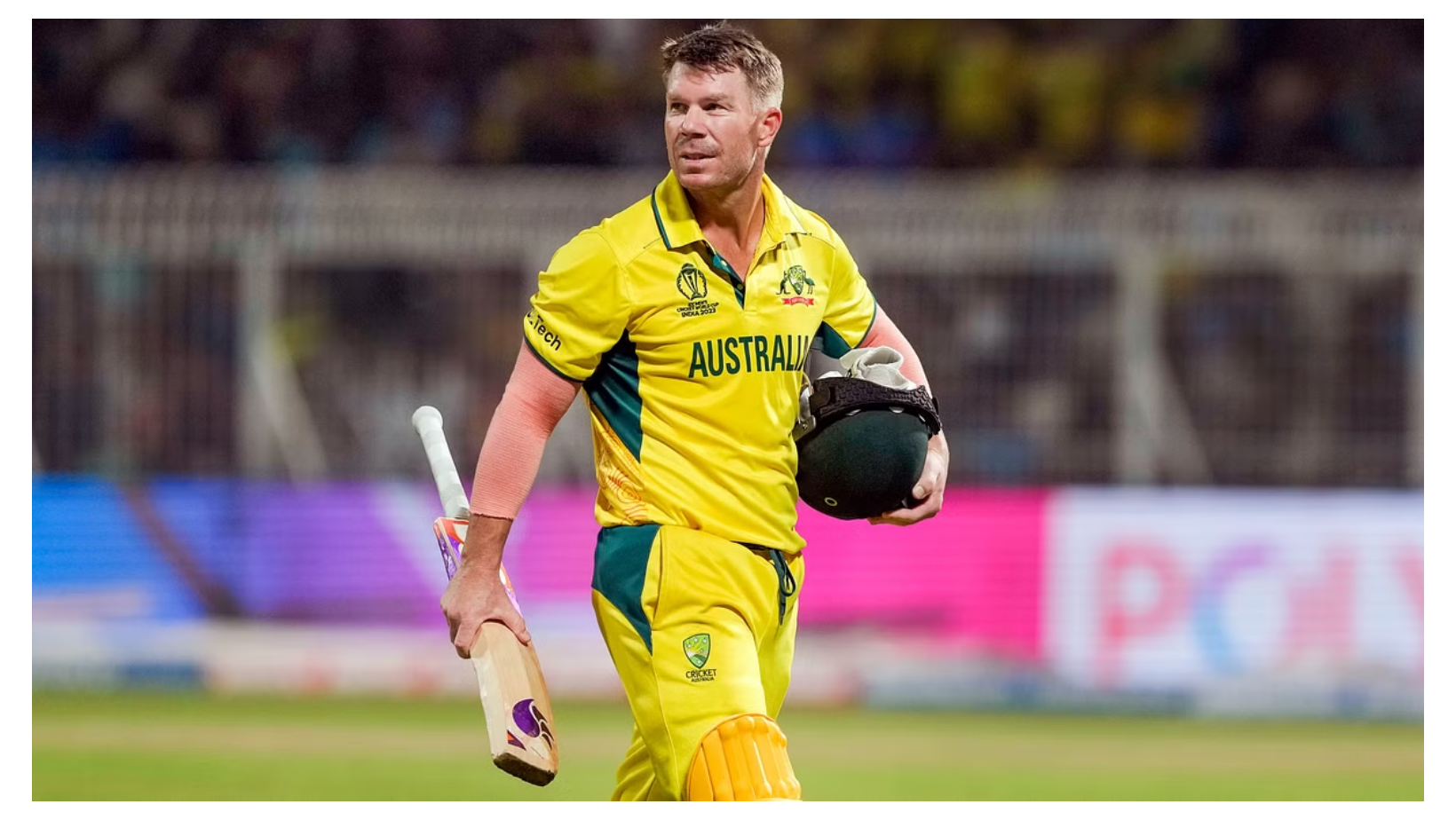After seven failed attempts, their men’s World Cup semi-final jinx is broken. After plenty of scrapping at this World Cup, they were clinical in their quest for history
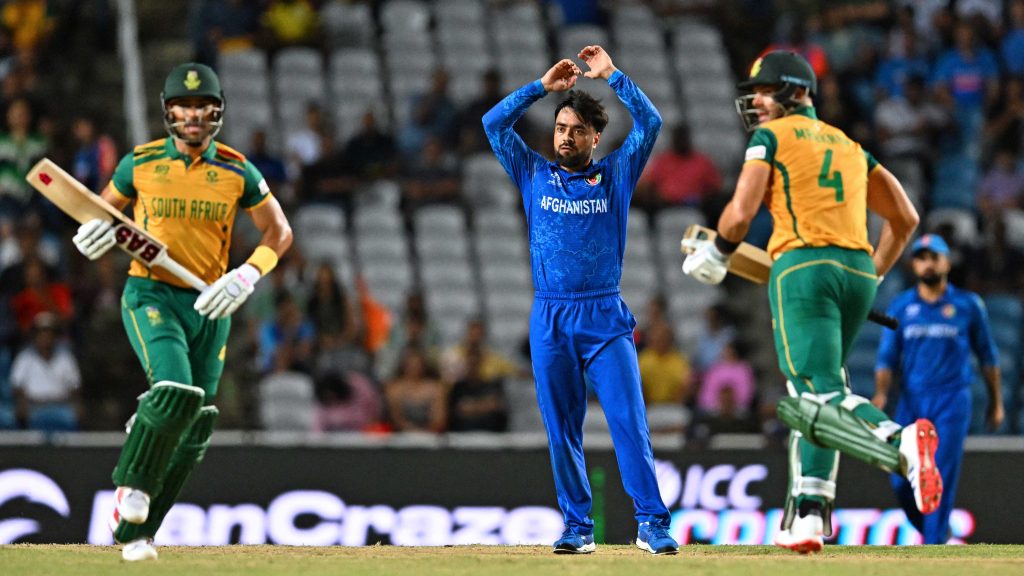
The complete game. After seven hard-fought matches at the T20 World Cup 2024, Aiden Markram was searching for perfection. Five overs into the semi-final, his bowlers seemed to deliver just that.
Marco Jansen and Kagiso Rabada utilized South Africa’s strengths of seam movement and bounce, while Anrich Nortje’s express pace floored Afghanistan, ending their fairytale run. South Africa’s seamers excelled at moving the ball back into the right-handers off a good length and used their height to vary their deliveries, surprising the batters. Afghanistan lost their top run-scorers early and struggled to counter-attack, for several reasons.
One reason was the quality and aggression of South Africa’s attack, another was the difficulty of the surface, and Rashid Khan admitted the team had not slept much since qualifying for the semi-final late on Monday night local time. The lack of sleep was partly due to a travel delay and partly because of their celebrations. Despite the tournament’s travel logistics, Afghanistan’s emotional exhaustion was understandable, and few teams can relate better to that than South Africa. Historically, they have been overwhelmed by expectation, as evidenced by their record: seven men’s World Cup semi-finals, no wins. But on Wednesday night in Tarouba, they were ice-cold.
The wickets fell so quickly that the South Africans barely had time to celebrate, and the absence of major outbursts was noticeable. The most animated South African was Tristan Stubbs, who was not involved in any dismissals but celebrated each wicket with air punches, leaps, and whoops. As the youngest squad member and the only one without knockout heartbreak experience, Stubbs showed the raw joy that the others kept inside, providing a glimpse of what unrestrained ecstasy could look like for South Africa in a men’s World Cup semi-final.
The perfect game. After seven scrappy matches in this World Cup, Aiden Markram knew flawless games were rare. Three overs into the chase against Afghanistan, South Africa’s batters realized it would not be easy.
South African fans came out to support their team in Tarouba. They had only six runs on the board, Quinton de Kock was bowled by a Fazalhaq Farooqi inswinger, and Markram should have been out, but Afghanistan did not review when he nicked off against Naveen-ul-Haq. With variable bounce, South Africa had to channel their resilience from New York, where runs were hard to come by but they always managed to get just enough. They knew it would not be pretty. Then, two overs later, against the run of play, Markram stood tall and played a perfect cover drive. He stepped forward, leaned into the ball, struck it sweetly, and held the pose. On a difficult surface, such shots were rare, but that one, in the middle of a 13-run over, shifted momentum and opened South Africa’s path to the final.
It was not the perfect game South Africa sought, but a series of perfect moments that gave hope to an imperfect country that the impossible might be achievable.

At 4:37 am South African time on Thursday, when Reeza Hendricks hit the winning runs, ordinary South Africans were waking up in mid-winter (happily with electricity, which was a welcome change), preparing for long commutes to work. Most would have seen the news on social media because they did not have cable TV subscriptions to watch the match. When they realized what had happened, they may have reflected on 18 months of unprecedented success in South African sport.
Tabraiz Shamsi welcomed Aiden Markram after their dominating win. Since February last year, the women’s national cricket team reached the final of the home T20 World Cup, the women’s national football team became the first senior side to advance past the group stage at the FIFA World Cup, the Springboks won a fourth World Cup, and the men’s national football team had their best finish in the African Cup of Nations since 2000. Winning seems contagious, and the belief that South Africans are winners has finally reached men’s cricket. This success could not have come at a better time and place.
In the 2007 semi-final against Australia in St Lucia, South Africa were 27 for 5 on their way to 149, eventually losing by seven wickets. Of all their semi-final failures, that was the most dismal. Seventeen years later, they returned to the Caribbean, won eight out of eight, and delivered their most dominant knockout performance in history.
South Africans often believe every tournament will be the one they win, and when they don’t, they console themselves with the hope of next time. This time feels different. Perhaps after all the waiting, their time is now.

